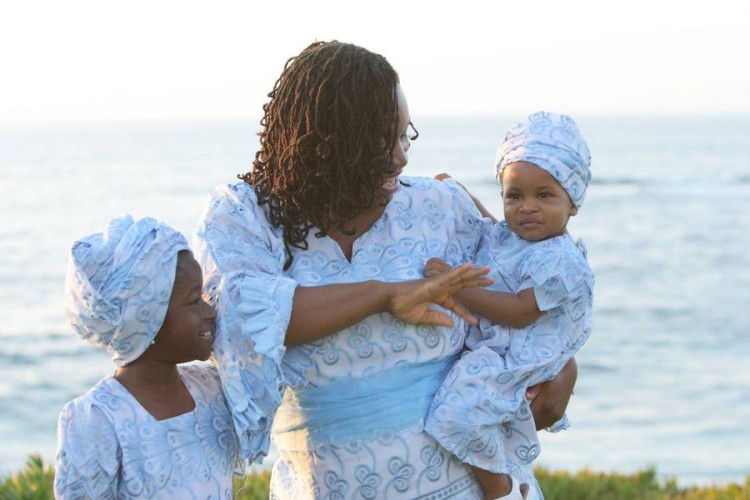I’ve always been autistic, but I haven’t always known it. I knew I was different from other people, but the difference didn’t have a name I was aware of. It was just the way I was. Some of my differences were pretty cool. Like the way I could easily remember and reproduce much of what I’d seen or heard, the way I could figure things out that stumped other people, how deeply I felt about things and my naturally authentic nature.
Other things, though, seemed more challenging for me than other people, like socializing, making myself understood, unpleasant noises and sounds and dealing with sudden changes. I was a living contradiction. I was reading on a college level in early elementary school, but I couldn’t tie my own shoelaces. I could endure intense pain, but the sensation of a tag from a shirt against the back of my neck or water inside my ears generated endless tears. I could converse easily with adults, but I struggled to make sense of my peers’ chatter. And even when I was comfortable with other kids, I couldn’t speak at all sometimes because the words wouldn’t come out right or were too hard to find. I needed my pen and paper to speak for me. My communication, socialization, sensory experiences and speed/manner of processing and responding to everything were so very different than everyone’s (except my mom).
For the most part, I didn’t have a problem with myself, but I wish things that seemed so easy for other people weren’t so hard for me. So I guess I did somewhat have a problem with myself, but only in comparison to other people, not from within. Because of that, I had a difficult time accepting myself for years because it seemed that who I was must somehow be wrong. Fortunately, I eventually realized I was exactly the person I was supposed to be. Sadly, it took years. But at least it happened. It still didn’t have a name, but I didn’t know there was a name anyway.
Until adulthood, I had scarcely even heard the name of term autism. I had little concept what it was. I recall a daytime soap opera I watched as a child that featured a character who had an autistic daughter. In most episodes, the daughter was hidden away at some expensive “special school.” Shockingly, the girl’s mother was embezzling funds to pay for her daughter’s tuition. According to the storyline, she felt she had no other options. The takeaway message seemed to be that autism was something rare, debilitating, tragic and required costly care. Other than that, I had little exposure to known autistics nor information about autism. It just didn’t come up.
Fast forward many years to motherhood, and I am blessed with the most amazing children on the planet, two of whom happen to be on the autism spectrum. It was through their diagnoses, subsequent research and thorough self-evaluation that I began to seek answers about my own neurology. Through them, I first suspected, and later confirmed, that I was autistic, too, but simply hadn’t been aware. It was extremely eye-opening and powerful for me to finally have this insight about myself. Equipped with this new knowledge, everything began make so much sense to me.
I only wished I had this awareness when I was much younger. It would have helped me understand how to better operate, learn, handle challenges and socialize. I could have avoided costly mistakes, made different choices and sought strategies to have my needs met in a way that worked for me. I could have had opportunities to stand up for myself. Armed with this knowledge, I’m now able to do those things. But I realized there were many lost opportunities from my past. I knew I could never get those years back. But now I wanted to try to give others what I hadn’t been able to have for myself.
I think it’s important to point out I was already a part of the autism community as a parent of autistic children, but I didn’t have to reveal my own diagnosis to others. Because it can seem like the voices of autistic adults are perceived as less relevant than the voices of non-autistic parents/caregivers and because individuals like me can be disregarded by some members of the autism community as “not really autistic,” “not autistic enough” or “not like my child,” it may seem there was little to gain by coming out as autistic. And a lot to lose. But I still wanted to. I was the same person before and after the discovery — except I wasn’t. I was no longer unaware about who I was. All of me. My full, true, perfectly imperfect autistic self.
I wanted anyone out there who remotely identified with me in any way — age, gender, ethnicity — to be encouraged by my existence. To know that they were not alone. I wanted autistic kids (like my own and others) to know that it’s OK to grow up to be an autistic adult like myself. I wanted people to know that even though I have real challenges, being autistic has also afforded me many strengths, too. I wanted autistic adults who were diagnosed late to know there was a community filled with people like me who have found one another. I also wanted people from various groups who have been often less represented in autism to hopefully feel a sense of kinship with me.
So when I came out as autistic, I did it big. On that fateful day, I participated in a local cross-disability festival, which highlighted various films, images and other content with a focus on disability acceptance. I stood next to a “larger than life” image of myself that was part of a traveling photo exhibit. Next to my image were the following words:
“Morénike is an autistic adult who proudly wears the hats of wife, mother, advocate and student. She is passionate about social justice, global health, education, adoption and community empowerment.”
I came out as autistic publicly and have never regretted living an authentic life. I’m free to be me. I swung the closet door open that day and stepped out, never to return.
Follow this journey on Just Being Me…Who Needs “Normalcy” Anyway?


